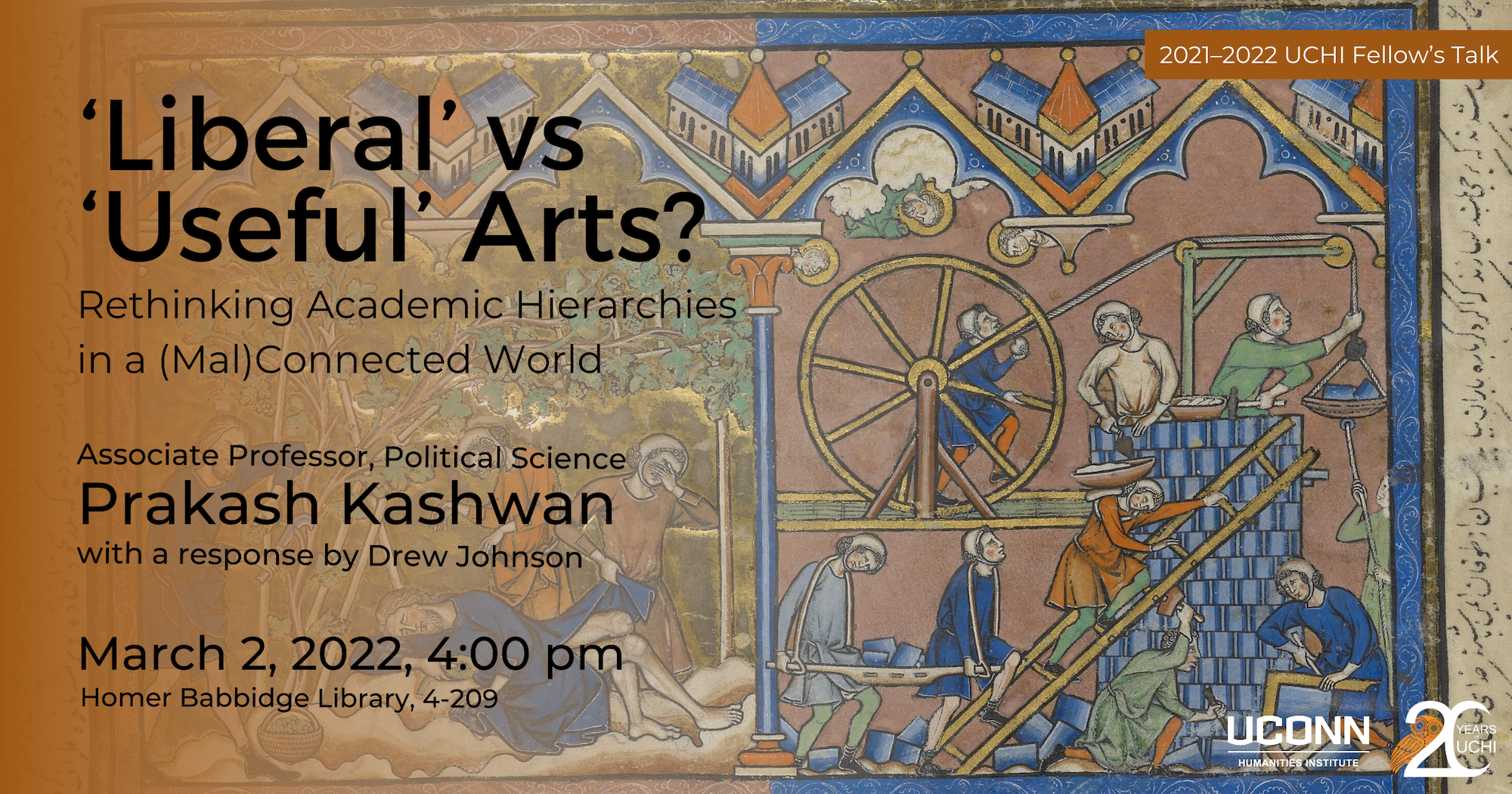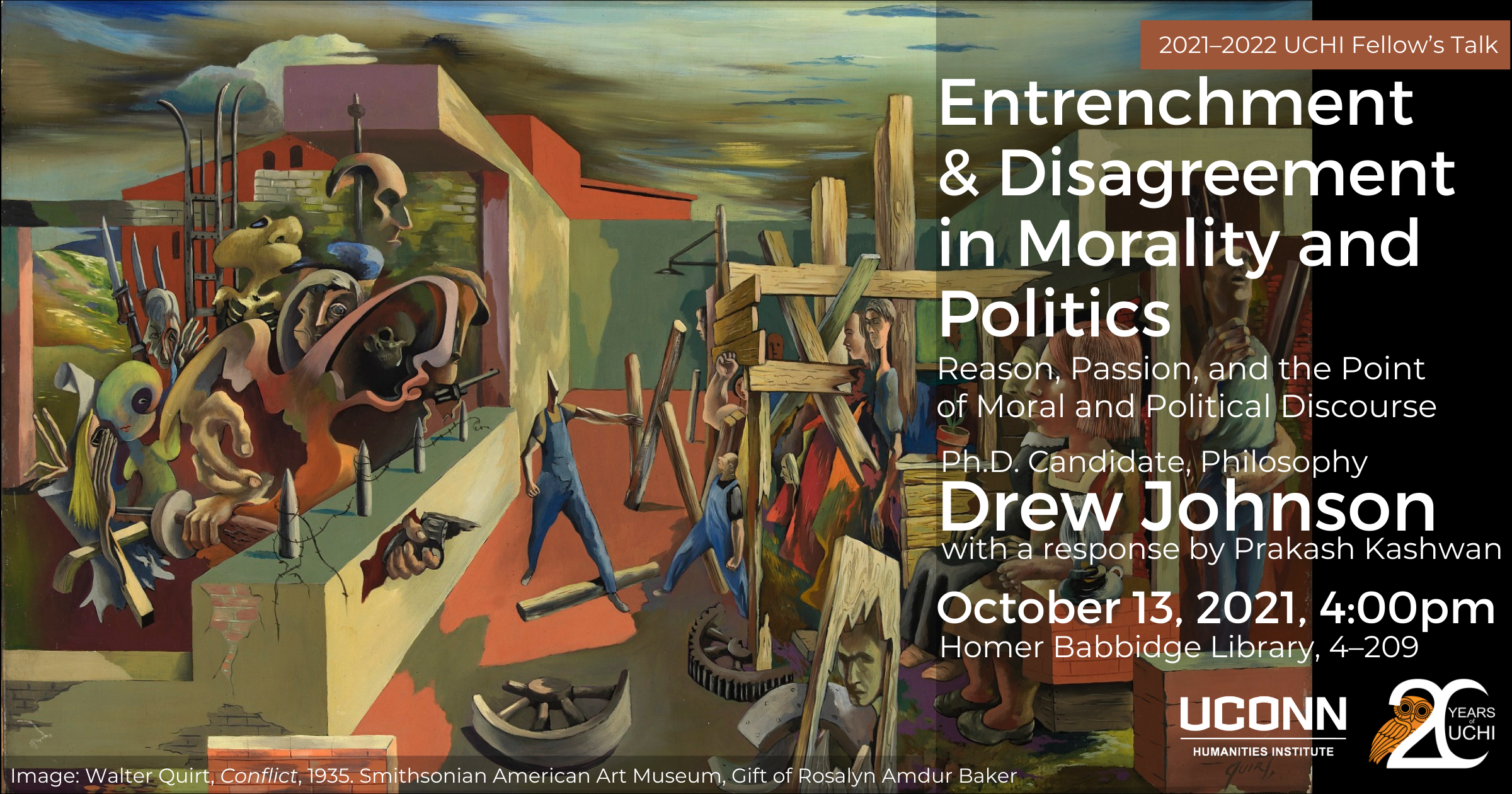“Liberal” vs “Useful” Arts? Rethinking Academic Hierarchies in a (Mal)Connected World
Prakash Kashwan (Associate Professor, Political Science, UConn)
with a response by Drew Johnson (Philosophy, UConn)
Wednesday, March 2, 2022, 4:00pm, HBL 4-209
Add to Google calendar Add to Office 365 calendar Add to other calendar
The event will also be livestreamed with automated captioning.
Contemporary calls for the fusion of ‘humanities’ and ‘sciences’ stand atop a long history of a hierarchical world view that separated the intellectual pursuits of liberal arts from the less prestigious fields of mechanical or ‘useful’ arts. While liberal arts were believed to be the domain of ‘free men,’ useful arts were meant for ‘slaves and serfs.’ Prakash Kashwan asks how living legacies of such a hierarchal view of academia might haunt the pursuit of ‘interdisciplinary’ research, which itself has been come under heavy criticism from radical social thinkers and philosophers. Kashwan asks what such a-priori characterization of any intellectual pursuit means for our collective ability to contribute to realizing justice outcomes in a mal-connected world. He engages the audience in centering human agency and ingenuity in diverse intellectual pursuits aimed at smashing the status quo toward a liberating and transformative world making.
Prakash Kashwan is an Associate Professor of Political Science and Co-Director of the Research Program on Economic and Social Rights, Human Rights Institute, University of Connecticut, Storrs. He is the author of the widely reviewed book Democracy in the Woods: Environmental Conservation and Social Justice in India, Tanzania, and Mexico (Oxford University Press, 2017), editor of Climate Justice in India (Cambridge University Press, July 2022), co-editor of the journal Environmental Politics, and the co-founder of Climate Justice Network. Dr. Kashwan is also the vice-chair of the Environmental Studies Section of the International Studies Association (ISA), and serves on the editorial advisory boards of Earth Systems Governance, Progress in Development Studies, Sage Open, and Humanities & Social Sciences Communications. His public-facing writings have appeared in popular venues, such as The Conversation, the Guardian, Al-Jazeera and the Washington Post.
Drew Johnson is a Philosophy PhD candidate at the University of Connecticut. His dissertation project, “A Hybrid Theory of Ethical Thought and Discourse,” examines the nature and function of ethical thought and discourse. Drew has published on skepticism, deep disagreement and intellectual humility, and on self-knowledge (including co-authored work with Dorit Bar-On). During the Summer of 2019, he was the recipient of the Ruth Millikan Graduate Research Fellowship, awarded by the UConn Philosophy Department. Drew is currently a Dissertation Scholar at the University of Connecticut Humanities Institute.
Access note
If you require accommodation to attend this event, please contact us at uchi@uconn.edu or by phone (860) 486-9057. We can request ASL interpretation, computer-assisted real time transcription, and other accommodations offered by the Center for Students with Disabilities.



